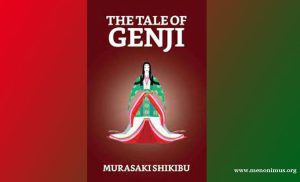The Tale of Genji | Lady Murasaki Shikibu | A Review
The Tale of Genji Lady Murasaki Shikibu A Review
The Tale of Genji by Lady Murasaki Shikibu-A Review
Introduction
“The Tale of Genji,” written by Lady Murasaki Shikibu in the early 11th century, is a classic work of Japanese literature that stands as a monumental achievement in world literature. This sprawling narrative, often considered the world’s first novel, is a nuanced exploration of courtly life, human emotions, and the complexities of relationships within the Heian period aristocracy. The novel’s depth, psychological insight, and enduring relevance have secured its place as a timeless masterpiece.
Plot Summary:
Set in the Heian period (794-1185) of Japan, “The Tale of Genji” follows the life and romantic exploits of Prince Genji, the son of the emperor and a noblewoman. The narrative is divided into 54 chapters, each highlighting different stages of Genji’s life and the people around him. As Genji navigates the intricacies of the imperial court, readers witness his personal growth, relationships, and ultimate search for happiness.
Key Themes and Analysis:
Courtly Life and Etiquette: One of the most striking aspects of the novel is its detailed portrayal of courtly life. The novel delves into the minutiae of Heian aristocratic customs, rituals, and protocols, providing readers with a window into a highly structured and ritualistic society. Through this lens, Lady Murasaki captures the tension between personal desires and societal expectations.
Emotion and Psychology: The novel delves deep into the emotional lives of its characters. Genji’s emotional journey, marked by joy, sorrow, longing, and regret, offers readers a profound exploration of human psychology. Lady Murasaki’s ability to convey the innermost thoughts and feelings of her characters showcases her remarkable insight into the human psyche.
Complex Relationships: “The Tale of Genji” is a tapestry of intricate relationships. It explores the multifaceted dynamics of love, friendship, jealousy, and rivalry among the characters. Genji’s relationships with multiple women, including his wives and consorts, highlight the complexities of power dynamics, gender roles, and societal expectations of the time.
Nature and Aesthetics: The novel is imbued with a deep appreciation for nature and aesthetics, a quintessential aspect of Heian culture. Descriptions of scenery, poetry, and art are seamlessly woven into the narrative, reflecting the importance of beauty and refined sensibilities in shaping characters’ emotions and actions.
Legacy and Interpretation: Lady Murasaki’s narrative technique, which shifts perspectives and employs a diary-like format, was groundbreaking for its time. This technique allowed her to explore different characters’ viewpoints and experiences, providing a holistic understanding of the story’s events. The novel’s legacy is evident in its enduring influence on subsequent Japanese literature and culture.
Conclusion:
“The Tale of Genji” by Lady Murasaki Shikibu is a literary masterpiece that continues to captivate readers across centuries. Its exploration of courtly life, emotions, and relationships, along with its intricate storytelling and insightful character portrayals, make it a timeless work. The novel’s ability to transcend its historical context and resonate with universal human experiences cements its position as an essential read for anyone interested in the beauty and complexity of human nature.
Lady Murasaki’s “The Tale of Genji” remains an exceptional example of the power of literature to bridge cultures, illuminate history, and provide insights into the depths of the human soul. 0 0 0.
The Tale of Genji Lady Murasaki Shikibu A Review
You May Like: Beowulf-A Review
N.B. The article originally belongs to the book entitled ‘The Reviews of Epic Literature Around the World Vol-II‘ by Menonim Menonimus.








